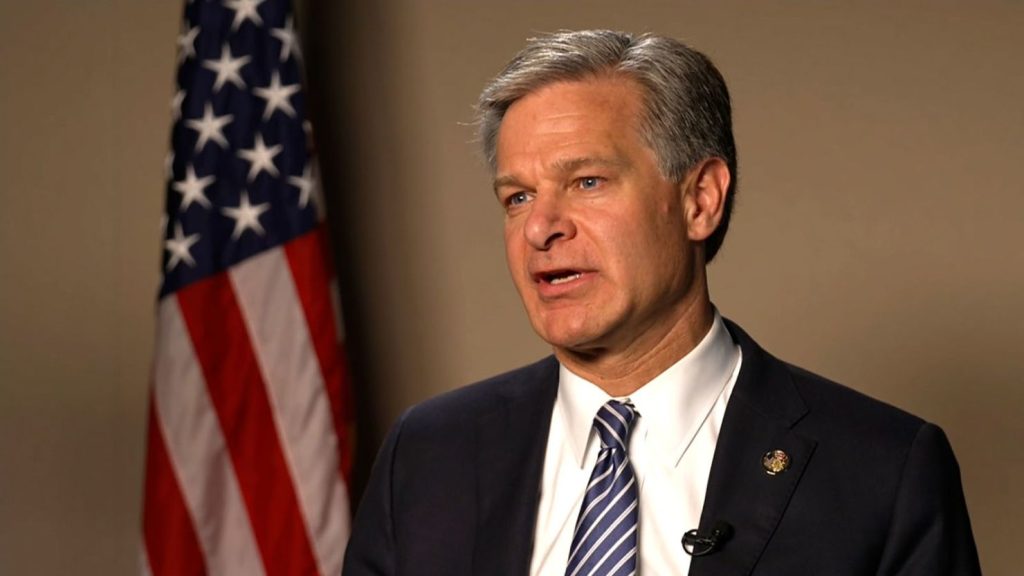
Former FBI Director Chris Wray is facing renewed scrutiny over his alleged role in the events surrounding January 6th. An AI-generated image recently circulated showing Wray in a prison cell next to January 6th defendant Ryan Samsel — a visual meant to highlight stark differences in treatment and provoke deeper questions about justice and accountability.
Samsel’s time in federal custody has been described as inhumane. Reports claim he was held in a small, windowless cell for nearly six months, subjected to unsanitary conditions, denied medical care, and abused by prison staff. He allegedly sustained serious injuries — including crushed bones and vision loss — and developed untreated blood clots. These conditions, and the broader handling of January 6th defendants, have led some to accuse Wray of complicity in a politically motivated crackdown.
Critics argue that Wray used the events of January 6th to advance a political narrative, possibly obstructing justice in the process. Some point to Section 1512, which addresses witness tampering and obstruction, asking whether Wray’s actions meet the threshold for prosecution under federal law.
Former Florida Attorney General Pam Bondi has come under fire for her response — or lack thereof — to these allegations. Despite being made aware of Samsel’s reported mistreatment, critics say Bondi has downplayed the issue, ignoring potential misconduct by federal agencies. This perceived indifference has fueled frustration among those who feel the justice system is being used selectively and unfairly.
Before his arrest, Samsel was known for charitable work, reportedly raising nearly $1 million to help those in need of medical treatment. Today, he struggles with severe health problems and public stigma due to his association with January 6th. His weight has dropped to just 140 pounds, and his case has become a symbol of what some call politically driven retribution.
As the discussion broadens, it has raised deeper concerns about institutional integrity and accountability. Critics argue that figures like Bondi have a duty to investigate and speak out against injustice, especially when federal agencies may be involved in politically motivated actions. Allegations that Wray directed the FBI to target January 6th protesters only amplify those concerns.
There is also growing outrage over the denial of medical care to Samsel after his release — especially as the government continues to allocate resources to others without hesitation. Many see this as evidence of a double standard in the justice system, where certain individuals are punished not for their crimes, but for their political affiliations.
As calls intensify for an investigation into Wray’s conduct, supporters of January 6th defendants are demanding a broader reckoning with how justice is applied in politically sensitive cases. Whether or not figures like Bondi choose to act may shape the future of public trust in the legal system.
With the aftermath of January 6th still unfolding, the spotlight is now on those in power. Will they rise to the occasion, or will inaction deepen the divide? The answer may define the next chapter in America’s pursuit of justice.
Leave a Reply